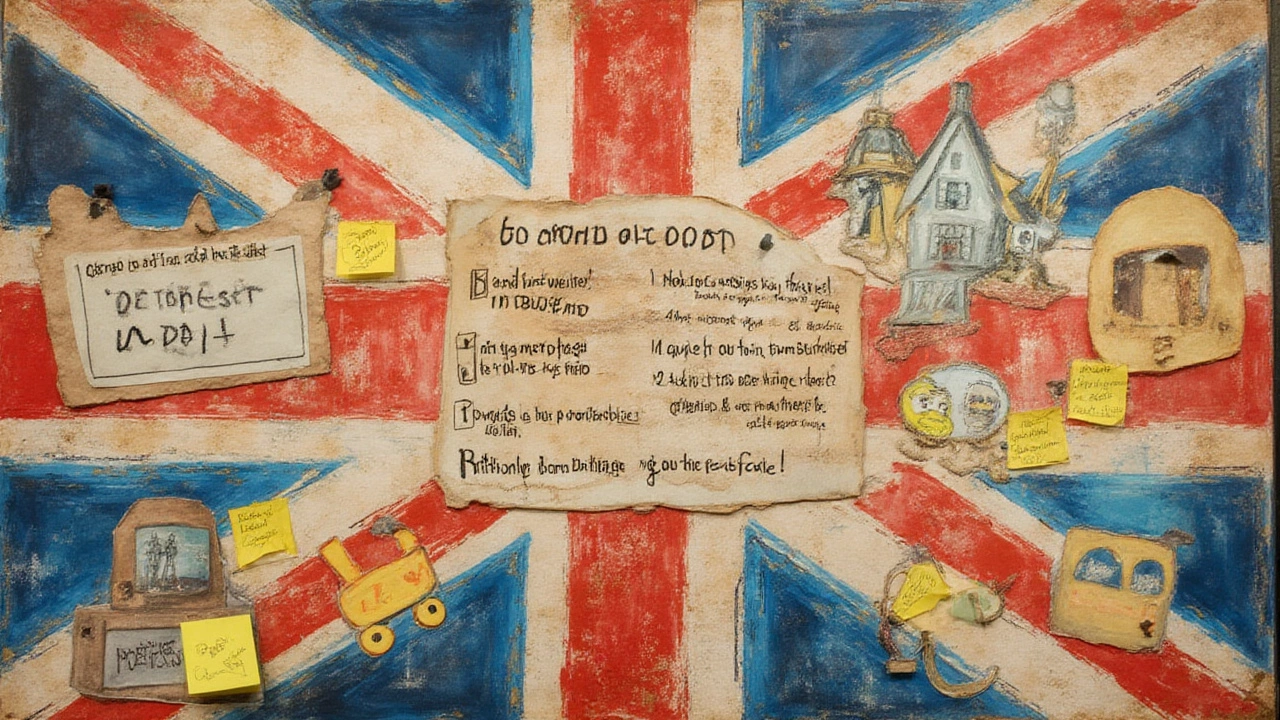You probably know at least one couple who thrives on double dates and group getaways. Maybe you’re that couple, or you want to be. But here’s the reality: vacationing with other couples brings all sorts of landmines and delights. Twenty percent of travelers in the U.S. say they’ve done a group trip with friends — and not everyone makes it home still speaking. The highs are intoxicating and the lows can test even the best friendships. After one legendary trip to Italy with two other couples (catastrophic group dinner in Rome, anyone?), I can tell you: plan it right, and you’ll get epic stories and closer bonds. Mess it up? You’ll be ghosting group texts for months. The secret isn’t luck or finding “the perfect friends.” It’s clarity, communication, and knowing how to create fun and flexibility for everyone. So how do you vacation with other couples without losing your mind or your friends?
Picking Couples That Click — Or At Least Don’t Clash
Let’s start with the basics. Before you ever book a villa, it matters who you invite. Not every friend is a good travel buddy, and that’s okay! Maybe you adore your one friend’s partner at brunch but cringe at the thought of six days sharing a beach house. The single best predictor of vacation happiness isn’t the place or the plan: it’s the people. The most successful couples group trips happen when everyone in the group lands about the same on the vacation personality spectrum. Are you all laidback, or do half the group crave 7am sunrise hikes while the other half treasures sleeping in? You really don’t want that drama. It’s like mixing water and oil—fine until you start shaking things up.
Look for couples who have compatible travel styles. This doesn’t mean identical interests but similar rhythms. It helps if everyone is upfront about what kind of vacation they want: relaxation, adventure, a bit of both? One recent survey from VacationRenter found 63% of people had at least one fight on a friend group trip because of mismatched activity levels. You’ll want to chat through nonnegotiables well before you search for flights. Do you need WiFi for work, or will tech detox be a thing? Is someone a vegetarian, or is it all steak all week? The group needs honest answers to little and big questions to avoid friction later.
Now, chemistry isn’t always obvious at first. But be alert for warning signs: one couple fighting in public, competitive energy, or “that friend” who wants to control the music, the meals, and the schedule. (Spoiler: that never ends well.) Some couples swear by a pre-trip dinner to test out dynamics. If you’re mixing old friends with new ones, watch how the group interacts. Sometimes, one person will naturally step up as the planner—if you’re that person, check in privately with each couple before big decisions.
Here’s a quick cheat sheet for picking couples:
- Similar budgets: No one wants awkward talks about splitting the bill every night.
- Comparable energy levels: Night owls and early risers can coexist if they’re flexible, but it takes effort.
- Travel goals: If one couple is all-in on sightseeing and another wants poolside drinks, recognize and respect the difference.
- No recent drama: If you just patched up a big fight, wait before jetting off together.
- Partner vibe check: Don’t guilt-trip anyone into joining — excitement beats obligation every time.
Fact: The average group trip lasts about five days. If you’re going longer, try a “split” trip: a few days all together, then time on your own at the end or start.
And if you’re traveling internationally, check that everyone’s up for the little stresses (layovers! late trains! jetlag!) that come with it. Some couples are great on a long weekend but unravel on foreign soil. If your friend had a meltdown after losing a suitcase once, maybe skip Morocco this year.

Money, Privacy, and Who Does the Dishes: Avoiding Vacation Traps
No topic sinks group trips faster than money. I learned this the hard way after a seafood dinner bill in Key West nearly sparked a shouting match over lobster and who drank those mysterious extra cocktails. If you want to keep the trip drama-free, tackle money first—before you’re all in the same car from the airport. About 42% of vacation group splits end badly over money (according to a recent poll by OnePoll). Besides, there’s nothing less relaxing than calculating who still owes for the Airbnb. Go granular: will you divvy expenses by couple, person, or try those clever apps like Splitwise? Are you rotating who pays for dinner, or will every meal get its spreadsheet? Make these systems clear up front so everyone can relax, not resent.
Here’s an easy way to create a sense of fairness and comfort:
- Use a shared app for tracking shared purchases (Splitwise, Venmo, or even Google Sheets).
- Rotate who reserves dinners or books outings, so the “planner” hat doesn’t get stuck to one head.
- Set ground rules: is anyone on a tight budget, and what’s truly out of range?
- If you rent a house, agree on things like groceries, cooking, and who’s on coffee duty in the morning.
- Opt for separate rooms if you can swing it. A little extra privacy makes a big difference after a day together.
It sounds obvious, but one major trip killer is micromanaging time together. A lot of couples feel like they need to do everything as a unit, but that’s a mistake. Leave wiggle room for people to split up. Your friend’s partner might want to nap while you and your crew sign up for a wine tour. If there’s an activity only one or two couples want, support “divide and conquer.” More time apart = better stories at dinner AND less pent-up frustration.
One debate that always pops up: do you do every meal together? Honestly, the freedom to eat a quiet breakfast alone—without small talk or performance anxiety—can save friendships. You don’t have to coordinate every bite. The same goes for bathrooms, showers, and laundry. If you’re renting a place together, talk through your house rules and chores before going so nobody feels taken advantage of.
Here’s a fun stat to keep in your back pocket: 78% of survey respondents say a lack of privacy can quickly derail a group trip. If you can, yeah, go for the bigger house with more bathrooms and space. That investment pays off on Day 3 when everyone wants a hot shower after hiking.
And please, leave time for couples to connect. There is actual research from the Journal of Travel Research (2021) showing that couples who schedule alone time while on group trips report up to 30% more enjoyment than those who don’t. Sometimes, just an afternoon stroll or coffee date away from the group can recharge your batteries.
| Common Group Trip Issues | % Occurrence | Quick Fix |
|---|---|---|
| Money disputes | 42% | Use expense tracking apps |
| Lack of privacy | 78% | Rent separate rooms |
| Activity clashes | 63% | Plan solo time |
| Uneven chores | 55% | Assign tasks early |
| Group decision fatigue | 61% | Rotate leadership |
Bottom line: honesty wins. If something’s bugging you—your friend’s snoring, someone’s tendency to ghost at dinner—talk about it before it blows up. Humor and patience go further than passive aggression. You want great memories and better friendships, not a to-do list for your therapist.

Turning Your Group Trip Into Legendary Fun
Great group trips don’t happen by accident. You have to build in time for chemistry, spontaneity, and memories that aren’t forced. Start by setting a relaxed “theme” for each day or creating low-pressure traditions. One couple I know does “Sunset Hour” every trip—it’s just cocktails on the porch before dinner, no phones, just vibes. Another group does blind “spot swaps,” picking a random local restaurant out of a hat so everyone gets a turn choosing without the pressure.
If you want real fun, lean into experiences you couldn’t do alone. Try splitting up for an afternoon, then reconvene with a group storytelling dinner. Organize a silly awards night after the trip—best storyteller, most lost passport, weirdest late-night snack. The point isn’t perfection; it’s sharing weird, memorable moments that become the stories you retell. I once played “couples trivia” in a Croatian villa and discovered more about my friends in 60 minutes than in a year of dinners back home.
Location matters, but flexibility matters more. Beach, mountain, city—make sure your destination offers enough variety. Research from Booking.com in 2024 showed that groups were 50% more satisfied when destinations offered both chill zones and activities. That means book that hotel with a pool AND walking access to fun bars. Don’t overplan every minute, but sketch out anchor experiences. Leave gaps for random markets, lazy mornings, and (yes) even the occasional nap. The best travel stories almost never come from the stuff you carefully scheduled.
Share duties and rotate “trip leadership.” On my last trip, we actually assigned a “Queen or King of the Day” who picked main adventures, playlists, and dinner spots. It kept decisions moving and made everyone feel included. Here’s a pro tip: the most effective groups communicate through a dedicated group chat long before departure—share packing tips, playlists, and who’s bringing the sunscreen.
Here’s a list of can’t-fail ideas and traditions to try:
- Host a “welcome night” toast to break the ice and set the tone.
- Bring card games or party games for downtime (exploding kittens, anyone?).
- Assign different couples to organize a special meal or activity.
- Make a collaborative photo album afterward—Google Photos makes it painless.
- Have a built-in chill zone: hammocks, board games, a cozy corner for reading or solo time.
- Try themed dinners or wear goofy hats at least once. It’s vacation. You’re allowed.
And don’t discount group traditions built on laughter. Two friends of mine swear by a “rant walk” each trip—just 20 minutes to vent about anything anonymously (the weather, slow WiFi, each other’s weird travel quirks). No hard feelings and everyone feels lighter afterward.
Every trip is a chance to learn something: about your friends, yourself, love, patience, or just how long you can live with another couple’s snoring before losing it. If you nail the mix of freedom and structure, you’ll come home recharged, not drained. You may not remember every meal, but you’ll remember that late-night swim, the dance-off in the kitchen, and those stories that are better, weirder, and maybe even truer than any Instagram post.
Ready? Pack your patience, your headphones, and a healthy sense of humor. Just don’t forget to plan for alone time—and maybe stock an emergency bottle of wine, just in case someone forgets to do the dishes.
